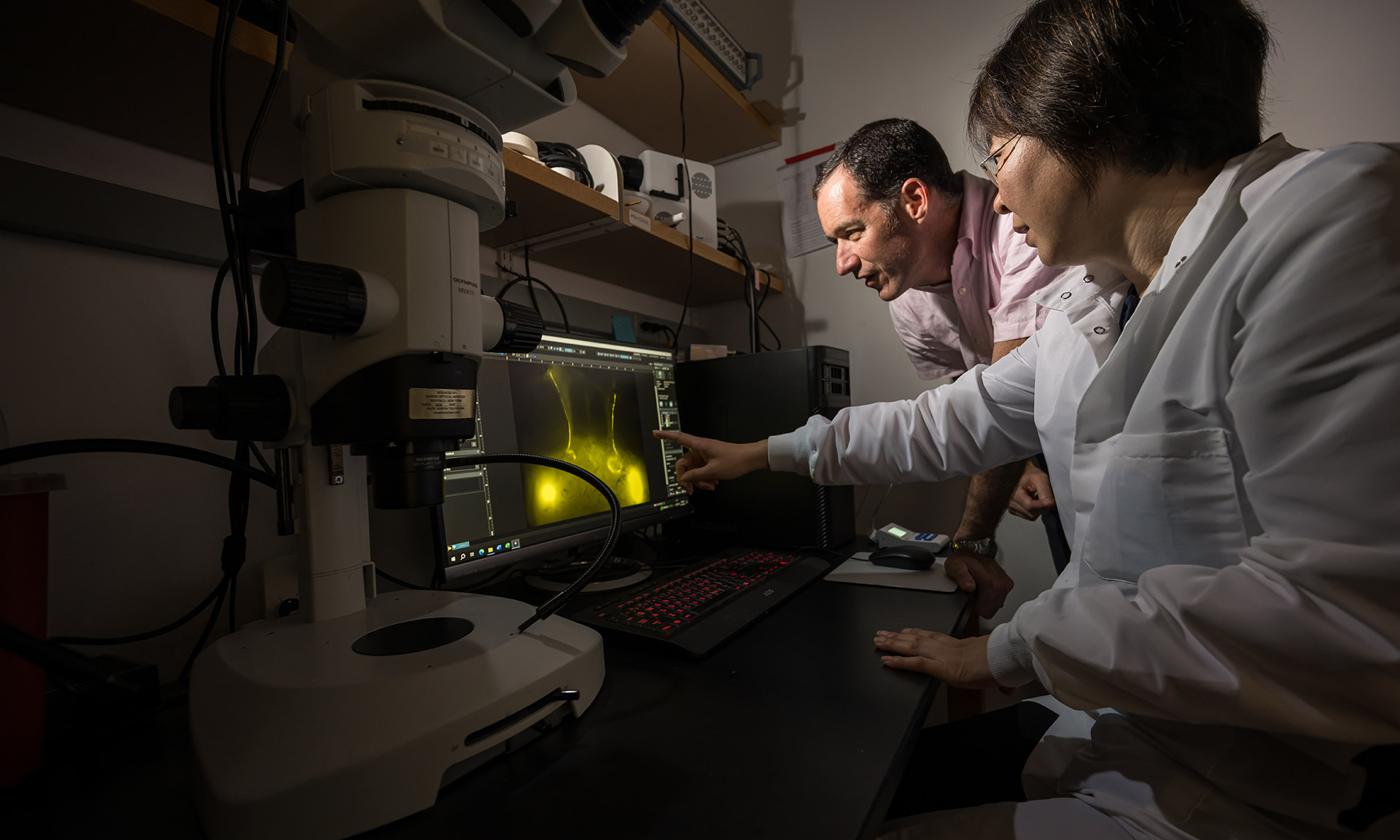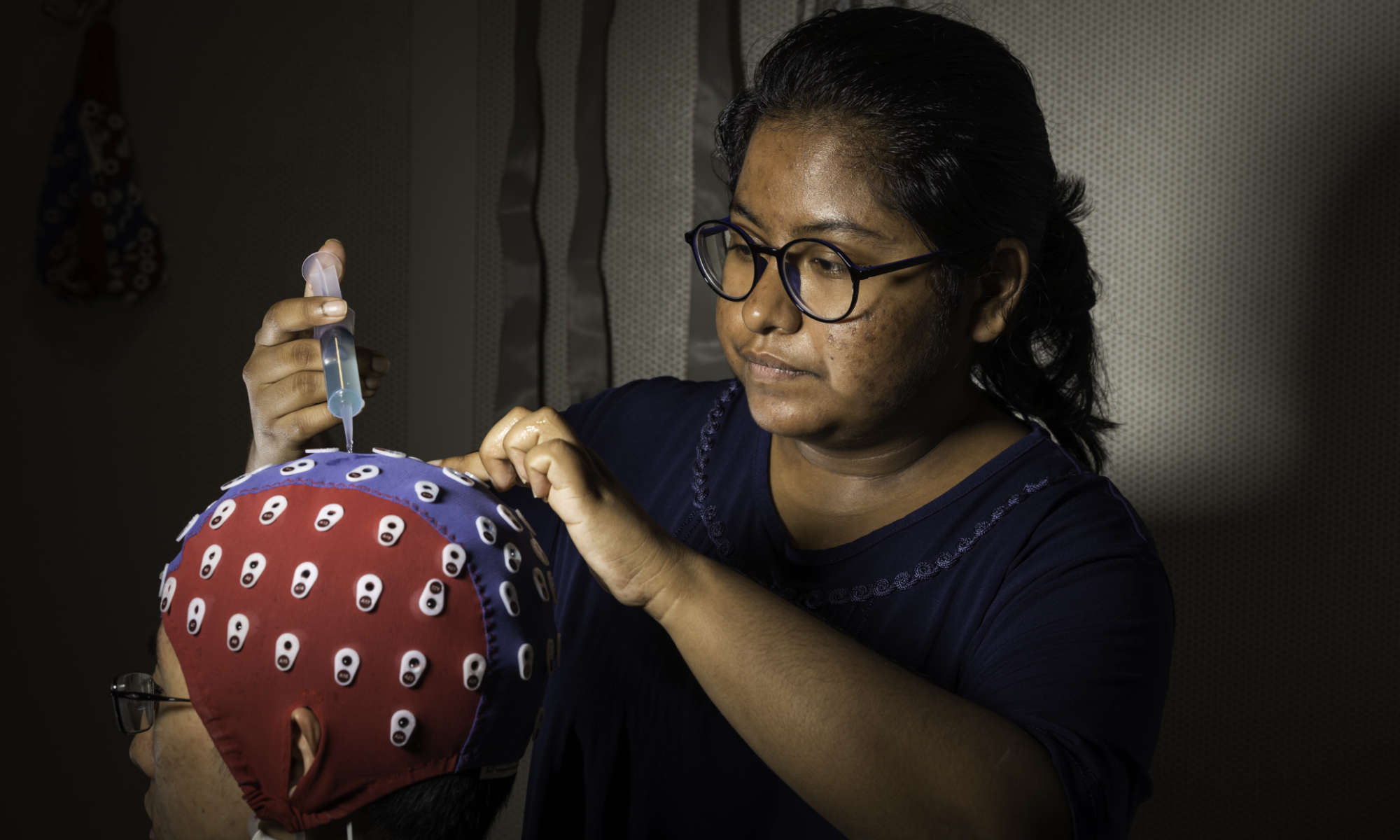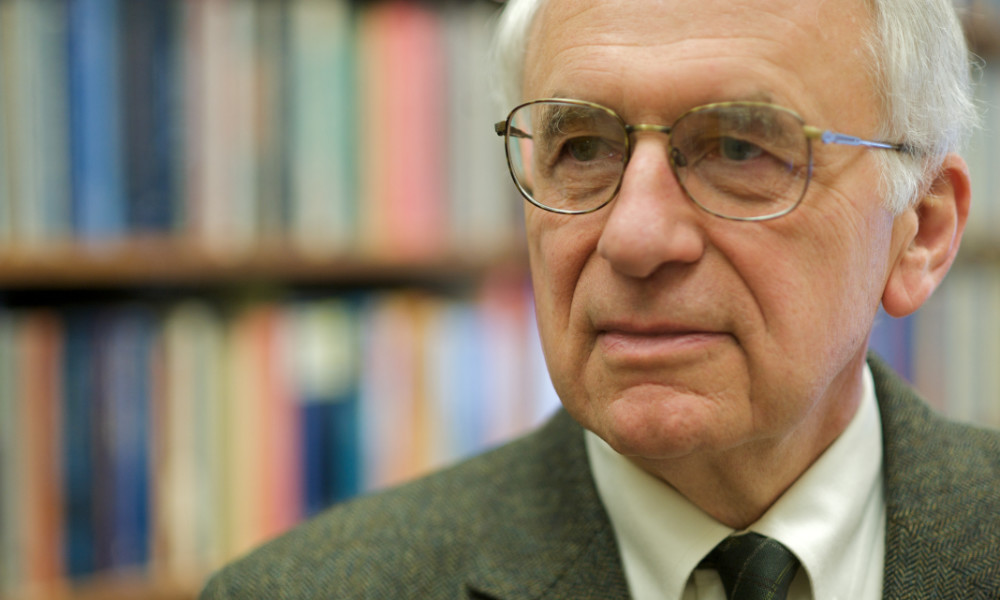
Science & Technology
Cleaning up the aging brain
Rochester scientists are restoring the brain’s trash disposal system with a drug currently used to induce labor.

Campus Life
Wired for research
Biomedical engineering student Sophea Urbi Biswas explores how the brain processes speech syntax—and discovers the benefits of conducting research as an undergraduate.

Science & Technology
At age 80, John Thomas writes new chapter in an illustrious career
The Rochester professor emeritus and new American Astronomical Society fellow now explores the brain’s waste disposal system.

Science & Technology
Software uses selfies to detect early symptoms of Parkinson’s disease
Rochester computer scientist Ehsan Hoque and his colleagues have harnessed machine learning to accurately identify signs of the neurological disease by analyzing facial muscles.
